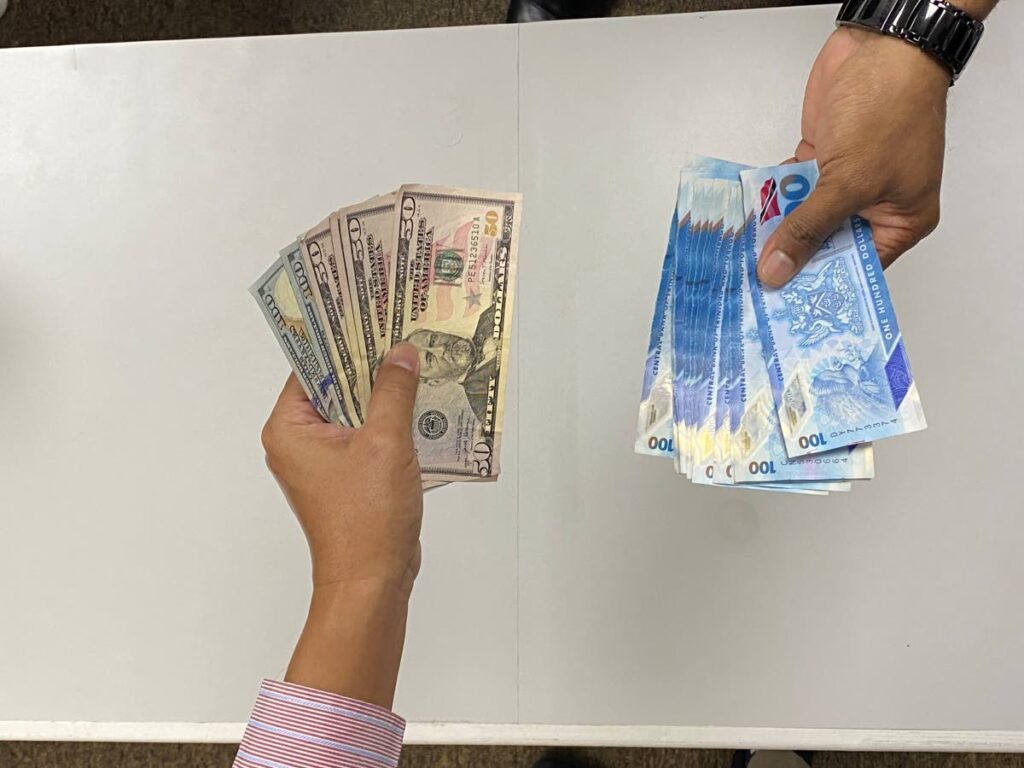PM: Government will not bow to special-interest pressure on forex

THE Prime Minister says government will not bow to special-interest pressure from people with foreign exchange (forex) to devalue the TT dollar so they can get more forex at the expense of the rest of the population.
Dr Rowley also said there is no evidence to suggest that Finance Minister Colm Imbert acted improperly in providing information to the Auditor General.
He made these statements in response to questions from the opposition in the House of Representatives on November 18.
To a question from Couva North MP Ravi Ratiram about what government will do to improve the ability for small and medium-sized businesses to access forex, Rowley replied, "I am aware that the member (Ratiram) is being affected by the situation. But I am not sure that one is allowed to use the House to advance your own business.
"We have noticed a deliberate attempt in recent times to put pressure on the government to devalue the currency. Let me save them (the people pursing this attempt) from wasting their time today."
Government MPs thumped their desks as Rowley declared, "There will be no devaluation of the currency, because the pressure on the government to devalue the currency is coming from people who have forex largely, using their attempt in the country to make this an issue, ignoring the fact that any devaluation could only result in increased costs across the board."
While a devaluation will make those with forex wealthier because they can access more of it, but negatively affect others who cannot, Rowley said, "We must be the only country in the world (where) people are demanding to devalue the currency and decrease their wealth from those who have to pay."
Government MPs thumped their desks as he added, "This is special-interest pressure, and the government will not bow to it."
He estimated the amount of forex available in the commercial banking sector at approximately US$7 billion.
Rowley added this was similar to the amount in the sector in 2014 under the UNC-led People's Partnership coalition government.
"There has been no reduction in the marketplace for the government's support for forex."
Of the US$7 billion, Rowley continued, government directly injects US$2.5 billion into the sector annually.
He said the remaining US$4.5 billion is acquired by commercial banks directly from their US-dollar earnings clients.
Rowley added this year, "There is clearly an increased demand for forex due to the growth in the economy and an increase over the years in a taste for foreign goods and for the use of online purchasing."
He reminded MPs that Imbert is currently meeting stakeholders to determine the reasons for the increase in demand for forex with a view to arriving at a consensus on the management of this demand going forward.
Rowley said this may involve "more regulation of the method and manner of distribution by the banks of the government's forex that is injected into the commercial banking system by the Central Bank on a monthly basis."
He said Imbert has "already met with the four largest commercial banks (RBC, RBL, FCB and Scotiabank) to discuss this matter," and will meet with business organisations over the next month.
"As I answer this question, I simply want to add there is a misalignment between the appetite to spend forex and the ability to earn forex.
"We do not create forex in this country except by earning it, and we can generate an infinite appetite to spend it, and that's where the management system comes in."
Government, he continued, has certain arrangements in place to ensure certain basics are funded. These include food, medicine and support for manufacturers.
Rowley's comment covered some of the points Imbert raised in a November 12 statement from his ministry.
In that statement, Imbert said: "All a devaluation will do is cause a massive spike in the cost of living and make everything more expensive. It will not create any additional US dollars for the country or make forex more readily available for ordinary citizens."
He rejected claims from certain sections of the media that government had only received a caution this year from the International Monetary Fund (IMF) on forex distribution.
Imbert said both the PNM and the PP had rejected calls from the IMF to devalue the TT dollar.
Earlier in the sitting, Rowley referred to a November 7 dismissal by the Privy Council of an appeal by Imbert and the Cabinet against the judicial permission given to Auditor General Jaiwantie Ramdass to pursue her lawsuit challenging a state-ordered probe of her approach to auditing the 2023 public accounts.
This case was related to a dispute between Ramdass and Imbert in April, after the Finance Ministry sought to deliver amended public accounts to explain and rectify an error in which government revenue was understated to the original sum of $3.4 billion, and subsequently to $2.6 billion.
Oropouche West MP Davendranath Tancoo asked Rowley if, on the basis of this judgement, Imbert will be investigated for failing to provide the relevant documentation for the Auditor General to do the audit in question.
Rowley said, "I am not aware of any query by any British or any other law lord and I am not aware of any role of the Minister of Finance in failing to provide information to the Auditor General."

Comments
"PM: Government will not bow to special-interest pressure on forex"